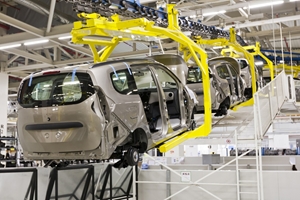Mr Gwilym spoke to Australia News Limited in early April regarding the state of the auto industry Down Under, in response to Holden, Ford and Toyota all announcing the decision to pull manufacturing from Australian shores.
“Our report shows that employment gains within car and parts wholesaling, repair and maintenance and tyre retailing has more than compensated for declines in employment within car and component manufacturing,” he explained.
“Even before the announcement of the car manufacturer closures, the retail, service and repairs sector comprised 87 per cent of Australia’s automotive industry.”
This shows that while manufacturing has been making waves as the sector contracts, the loss of this particular sector should not significantly impact on the number of employment and apprenticeship opportunities across the industry as a whole.
Auto Skills Australia has identified a number of different occupations facing skills shortages this year, including light vehicle mechanics, marine mechanics and small engine mechanics. Across the automotive industry, more than half of the employers have reported difficulties in filling these roles.
While Mr Gwilym acknowledges a number of these positions will be filled by upskilling those employees who have lost their jobs as the manufacturing sector contracts, there will still be significant opportunities for those entering the industry for the first time.
Phillip Murphy, a spokesperson from automotive training at Kangan Institute, revealed he has seen individuals from each side seeking training and education in this field.
“A number [of manufacturing workers] are currently being retrained in the automotive and engineering industries,” he said. “Their skills can be transferable across multiple sectors.”
Additionally, an increasing number of younger Australians are choosing automotive trades over traditional university courses. However, Mr Gwilym is urging more school-leavers to consider joining this industry to meet the impending skills gaps.
“The focus for higher education has been on university,” he explained. “But trades should be considered a viable option to help the country build its domestic skills.”
Queenslanders interested in automotive apprenticeships could benefit from access to a wide range of industries and occupations, including mining, marine and mechanics. With such a diverse range of opportunities, it is clear to see how a career in the automotive industry should not remain reliant on Australia’s contracting manufacturing industry.
By Leanne de Toerkenczy, Public Relations Coordinator
